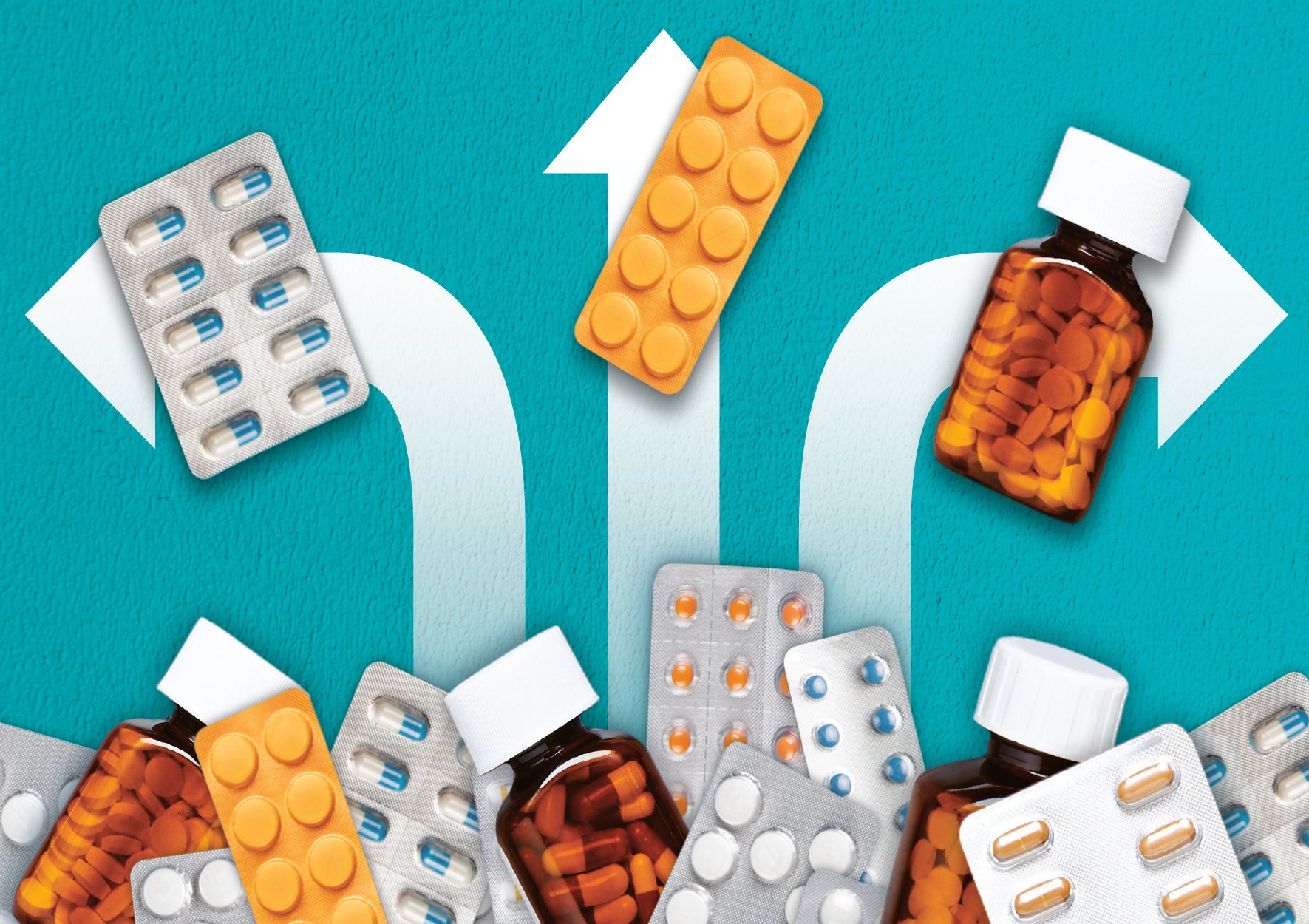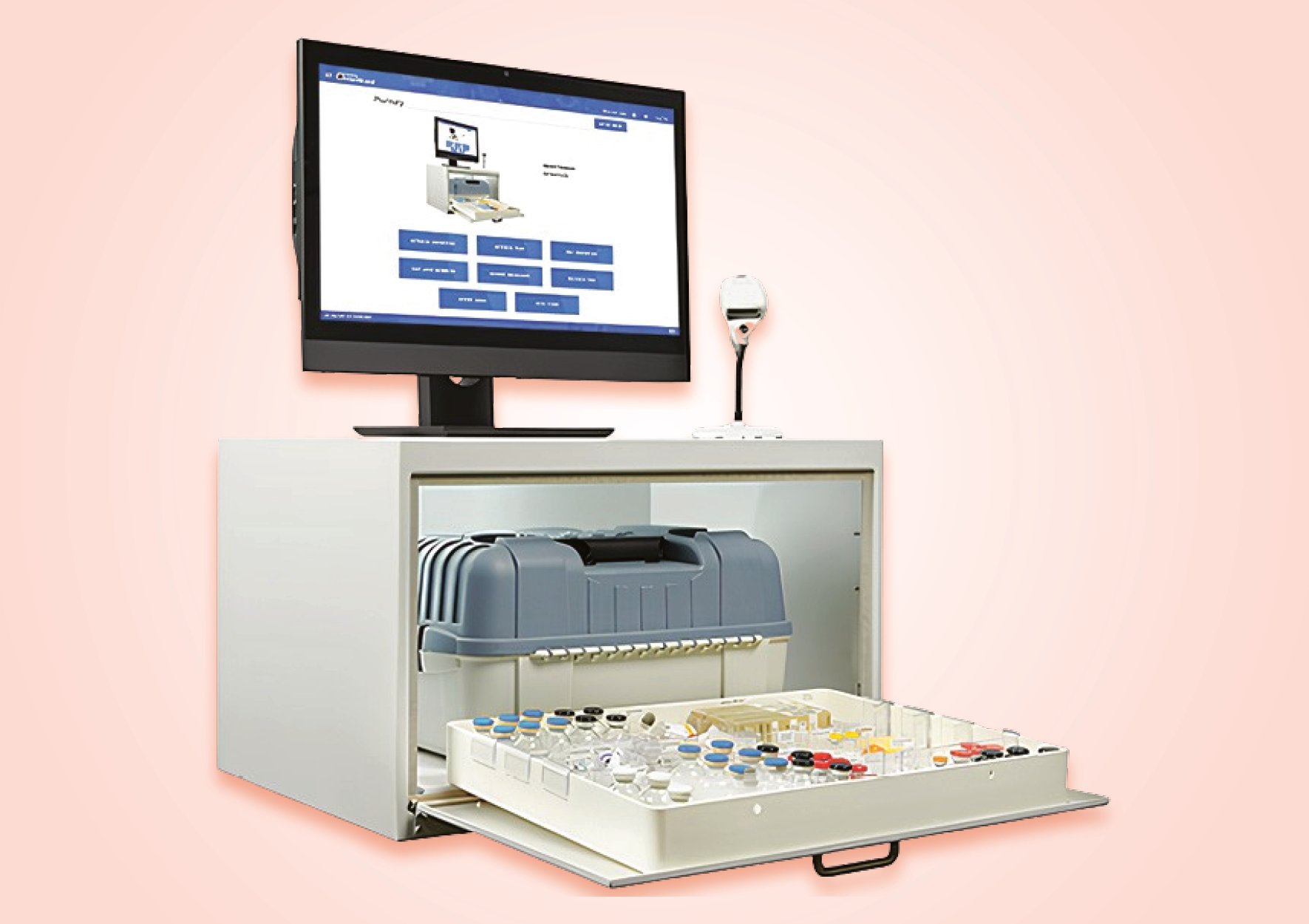- Show Menu
- Contact Us
- FAQs
- Reader Service
- Survey Data
- Survey Winners
- Testimonials
- Upcoming Events
- Webinars
- White Papers
Proposing a New Pharmacy Position: The Pharmacy Technologist
The practice focus of the hospital pharmacist is rapidly shifting from an emphasis on medication dispensing to a concentration on clinical medication-use management. The increasing prevalence of collaborative practice agreements, medication therapy management, and the expanding role of the pharmacist in prescribing illustrate how pharmacy practice is evolving to center on clinical pursuits. This transformation is concurrent with increased demands on proper management of pharmacy operations, including sterile and nonsterile compounding, medication repackaging, controlled substance accountability and monitoring, drug distribution, pharmacy automation, pharmacy informatics, regulatory compliance, drug shortage management, pharmaceutical purchasing and inventory control, and financial analysis. The profession of pharmacy requires a solid pharmacy operations foundation to support the pharmacist in the clinical management of medication use.
At the present time, pharmacy schools are producing graduates who are proficient with the clinical management of medication therapy. However, these graduates often do not have a comprehensive understanding of how pharmacy departments operate day to day. Moving forward, schools of pharmacy face the challenge of establishing the necessary curricula to ensure that graduating pharmacists will be successful in the clinical management of medication use, as well as knowledgeable about pharmacy operations.
Pharmacists primarily learn pharmacy operations via on-the-job training in the postgraduate work setting. This type of informal training in pharmacy operations presents challenges when pharmacists with assignments in pharmacy operations (eg, pharmaceutical purchasing, sterile compounding, automation, etc) leave the organization, and trained individuals may not be available to replace them. Furthermore, on-the-job training contributes to variability in how operations are performed across pharmacy sites, and ultimately, variability in the quality of pharmacy services provided to patients. The pharmacy profession needs an individual who, upon graduation from an educational program focusing on pharmacy operations, has the knowledge and competencies to perform and manage pharmacy operations immediately upon graduation.
How can the pharmacy profession address the conundrum of transforming pharmacist practice to focus on the clinical management of medication use while maintaining a solid foundation in pharmacy operations? The solution is to expand the role of pharmacy technicians to concentrate specifically on managing pharmacy operations. This new role could be considered the pharmacy technologist.
Expanding the Role of the Pharmacy Technician
The functions performed by pharmacy technicians have increased significantly in recent years to include purchasing, compounding, repackaging, drug distribution, informatics, and automation. It is not uncommon for pharmacy technicians to obtain medication histories as part of the medication reconciliation process, and multiple states have provisions for tech-check-tech programs in their state pharmacy regulations. Certified pharmacy technicians are becoming more prevalent in pharmacies, as health care organizations often require that a technician be certified as a condition of employment or according to a state’s regulations. Robust discussions are occurring regarding whether pharmacy technicians should be required to complete an ASHP/Accreditation Council for Pharmacy Education (ACPE)-accredited training program prior to taking the Pharmacy Technician Certification Board (PTCB) certification exam. Clearly, the practice of pharmacy technicians has been expanding rapidly and will continue to evolve.
The changing role of the pharmacy technician is akin to the evolution of the laboratory technician into the medical technologist’s role in the clinical laboratory. If the pharmacy technician evolves into the pharmacy technologist, pharmacists can focus on their primary function—clinical management of medication use.
Characteristics of the New Pharmacy Technologist Position
- Principal Job Function. The principal function of the pharmacy technologist will be to manage non-clinical duties and operations, allowing the pharmacist to concentrate on medication management.
- Main Responsibilities. Responsibilities of the pharmacy technologist will include working collaboratively with pharmacists to ensure that medication therapy is safe, efficient, and financially prudent; assuming management and leadership roles for pharmacy operations; and supervising and checking the work of pharmacy technicians. The pharmacy technologist will ensure that a solid pharmacy operations foundation exists to support the continuum of pharmacy practice, from the pharmacy technician to the pharmacist in charge/chief pharmacy officer, and will report to the pharmacist in charge/pharmacy director/chief pharmacy officer or the pharmacy technologist manager, if multiple pharmacy technologists are employed.
- Scope of Practice. Currently, the majority of the work performed by pharmacy technicians, with the exception of tech-check-tech programs, is reviewed by pharmacists. However, pharmacy technologists will have more independence within their scope of work, and will operate without the direct supervision of pharmacists.
- Pay Scale. It is envisioned that the entry level pay scale of the pharmacy technologist will initially be two-thirds of the staff pharmacist, with pay scale progression to the level of the staff pharmacist/pharmacy manager, and perhaps beyond, depending upon the extent of the pharmacy technologist’s assigned responsibilities and span of practice. Pharmacy practice acts will need to be revised periodically to optimize the role of the pharmacy technologist in the performance and management of pharmacy operations. (See SIDEBAR on page 38 for a Proposed Pharmacy Technologist Job Description.)
Pharmacy Technologist Education
The pharmacy technologist’s education will consist of a 4-year academic program culminating with a Bachelor of Science—Pharmacy Technologist degree. The curriculum will consist of courses in the basic sciences, pharmacology, pharmaceutical dosage forms, sterile and nonsterile compounding, pharmaceutical purchasing/inventory systems, drug distribution systems, pharmacy automation, pharmacy informatics, performance improvement, pharmacy law, financial management, and management/leadership skills. Pharmacy technologist students will be exposed to onsite applications of pharmacy operations in pharmacies throughout their educational program. Programs may be offered through schools of pharmacy or traditional 4-year colleges and universities.
An advisory board, consisting initially of academic institutional representatives, community pharmacists, hospital pharmacists, and school of pharmacy faculty members, will oversee each pharmacy technologist academic program. The advisory board will expand to include pharmacy technologists once pharmacy technologists enter the workforce. To ensure educational consistency, each program will be accredited by the ACPE. A program graduate will be licensed via a national, standardized examination prior to commencing work.
Conclusion
Pharmacists are making significant strides in transforming their primary practice focus to the clinical management of medication use; however, increasing demands on pharmacy operations are occurring alongside this shift. The pharmacy technologist’s unique training and expertise will help ensure that pharmacy operations are safe, efficient, regulatory compliant, and financially prudent. Ideally, the pharmacy technologist will emerge as the pharmacy operations expert and will complement the pharmacist, who will provide leadership in the clinical management of medication use.
Do You Have a Comment About This Article?
PP&P welcomes your insights. Please email Senior Editor Jennifer Karpinski at jkarpinski@ridgewoodmedia.com.

James R. Rinehart, RPh, MS, FASHP is principal of Winovation Associates, LLC, in Indianapolis, Indiana. He is a health system pharmacy management specialist and a consultant in medication systems management and medication safety.
SIDEBAR
Proposed Pharmacy Technologist Job Description
Position: Pharmacy Technologist
Reports to: Director of Pharmacy
Educational Requirements: Bachelor of Science—Pharmacy Technologist degree from an ACPE-accredited pharmacy technologist program
License: Maintains current national licensure as a Pharmacy Technologist
Status: Hourly non-exempt
Job Summary: The pharmacy technologist manages and performs pharmacy operations pertaining to pharmaceutical purchasing, inventory control and drug distribution; sterile and nonsterile compounding; and pharmaceutical repackaging and associated information systems. The pharmacy technologist ensures compliance with regulations and accreditation standards associated with assigned areas of responsibility. The pharmacy technologist develops and implements performance improvement programs for assigned areas of responsibility. The pharmacy technologist proactively reviews systems associated with assigned areas of responsibility to ensure that such systems operate in a financially prudent, efficient, and safe manner. Variations pertaining to financial performance, efficient processes, and safety are investigated and addressed in conjunction with the director of pharmacy and other individuals as warranted.
Essential Functions:
1. Ensures pharmaceuticals are purchased in a financially prudent manner through optimization of pharmaceutical group purchasing contracts, individual organizational contracts, and wholesaler programs, in accordance with applicable regulations.
2. Ensures that pharmaceuticals are stored in accordance with manufacturer specifications and applicable regulations/accreditation requirements.
3. Monitors pharmaceutical inventory levels and communicates to the pharmacy leadership team fluctuations in the ability of manufacturers’ abilities to supply medications routinely maintained as inventory items.
4. Coordinates and conducts physical pharmaceutical inventories, drug recalls, and pharmaceutical storage area monthly inspections.
5. Confirms controlled substances are procured, stored, dispensed, and destroyed in accordance with state/federal regulations and accreditation standards.
6. Manages and performs drug distribution functions via manual and technology methods (automated dispensing cabinets, pneumatic tube systems and associated technologies) to ensure that medications are provided to patients in a timely manner.
7. Ensures that sterile and nonsterile pharmaceutical compounding is conducted in accordance with applicable regulations and accreditation standards.
8. Maintains databases and technology applications associated with assigned areas of responsibility.
9. Develops (in conjunction with the pharmacy leadership team) performance improvement programs associated with assigned areas of responsibility.
10. Proactively reviews systems associated with assigned areas of responsibility to ensure that such systems are conducted in a financially prudent, efficient, and safe manner. Variations in financial performance, efficiency, and safety are reported to the director of pharmacy and applicable members of the pharmacy leadership team.
11. Develops and maintains statistical reports for assigned areas.
12. Creates policies and procedures for assigned areas and updates such policies and procedures as practices change.
13. Supervises pharmacy technicians, pharmacy technologists, pharmacists and/or other pharmacy staff as assigned.
14. Devises staffing schedules and assignments for all staff in assigned areas of responsibility.
15. Conducts performance appraisals for assigned staff.
16. Establishes budgets for assigned areas of responsibility in conjunction with the director of pharmacy and members of the pharmacy leadership team.
17. Develops and administers staff training and competency assessment materials for staff who work in assigned areas.
18. Performs patient charging and interdepartmental charge transfers as associated with assigned areas of responsibility.
19. Initiates and manages additional pharmacy operations and technical functions as assigned by the director of pharmacy.
Skills:
1. Knowledge and experience with pharmaceutical purchasing, inventory management and distribution systems, and applicable regulations/accreditation requirements
2. Knowledge and experience with sterile and nonsterile pharmaceutical compounding/repackaging systems and applicable regulations/accreditation requirements
3. Knowledge and experience with performance improvement and safety assessment processes
4. Ability to effectively communicate (written/verbal) with patients, organization staff, and general public
5. Excellent mathematical skills
6. Ability to work with standard computer office suite applications (word processing, spreadsheets, slide presentations) and health care patient information/financial systems
7. Ability to independently problem solve
8. Ability to effectively work in an interdisciplinary team environment
Environmental/Working Conditions:
1. Ability to cope with stressful situations
2. May be exposed to varying intensities of noise
3. Frequent contact with individuals
4. Fluctuations in temperature may be encountered
Equipment Requirements:
Equipment encountered may include, but may not be limited to: telephones, scanners, fax machines, copy machines, computers, calculators, balances, laminar flow hoods, biological safety cabinets, medication repackaging machines/devices, vendor ordering systems, pallet jacks, automated compounders/robots, and automated dispensing machines.
Like what you've read? Please log in or create a free account to enjoy more of what www.pppmag.com has to offer.








